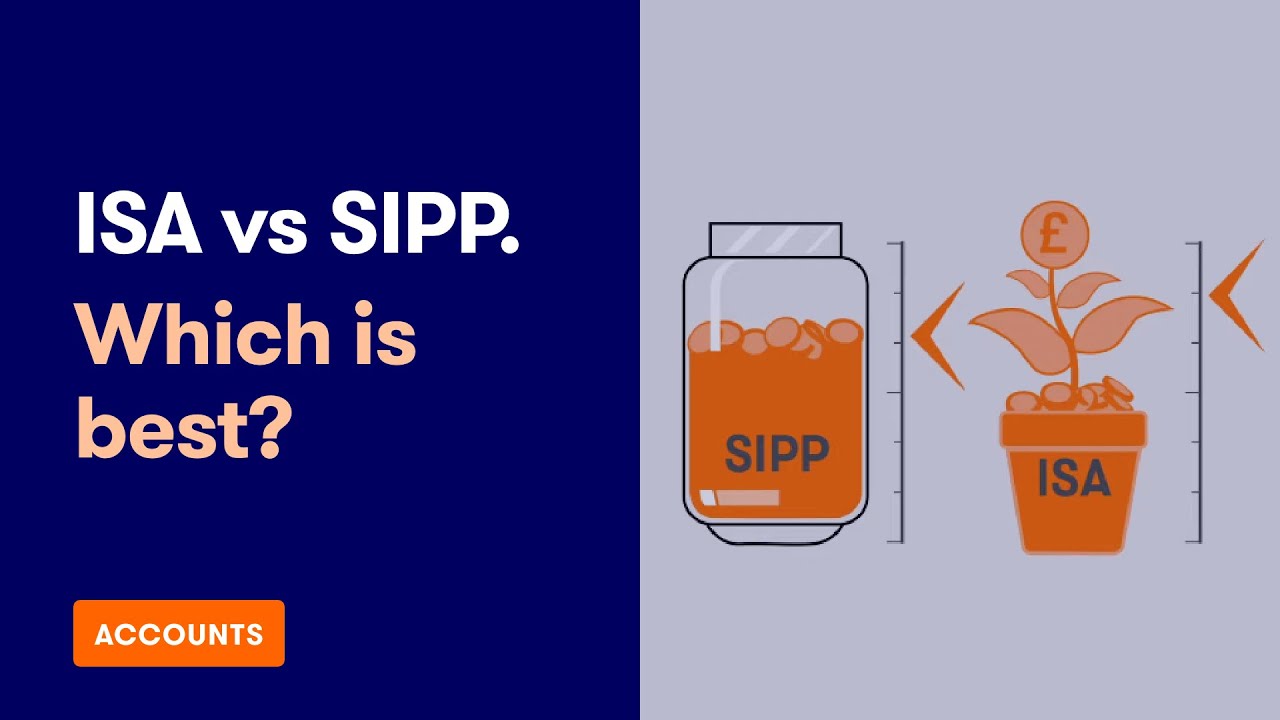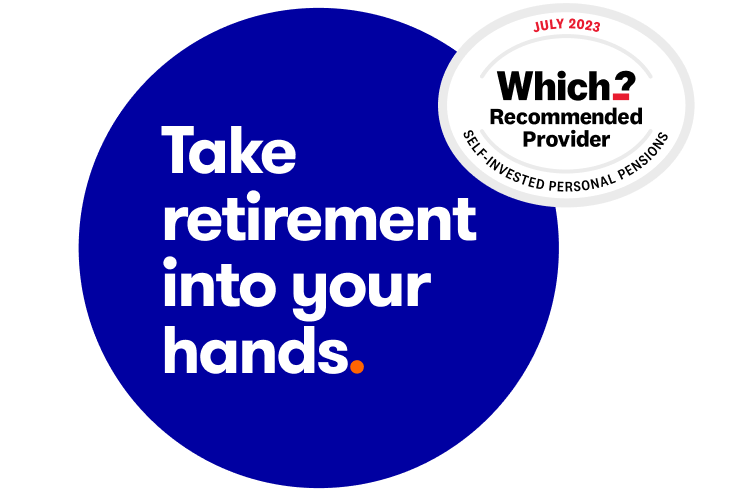Please remember, SIPPs are aimed at people happy to make their own investment decisions. Investment value can go up or down and you could get back less than you invest. You can normally only access the money from age 55 (57 from 2028). We recommend seeking advice from a suitably qualified financial advisor before making any decisions. Pension and tax rules depend on your circumstances and may change in future.
SIPP vs ISA: which to choose?
ISAs and SIPPs are both tax-efficient ways to save for the future, but there are clear differences between the two. It is important to research and find out which is the best option for your goals.
Of course, as long as you are 18 or over, there is nothing to stop you from having both.

SIPP
A SIPP (self-invested personal pension) is a type of pension that allows you to take control of your retirement saving.
You can:
- Choose what to invest in, including shares, funds and trusts.
- Contribute up to 100% of your earnings into your SIPP (subject to a maximum of the current Annual Allowance of £60,000 gross). All contributions receive 20% tax relief, which is essentially a government top-up on your pension.
Our Which? Recommended SIPP provides benefits on retirement based on the amount of money that has been paid in to the scheme, how long it has been invested, the level of charges and investment returns. SIPPs are designed to be long-term investments, and you will not be able to access your pension pot before the age of 55 (57 from 2028).
Stocks and Shares ISA
A Stocks and Shares ISA is a tax-free investment account. Unlike a cash ISA, a Stocks and Shares ISA allows you to choose what you invest your money in.
There is an annual allowance of £20,000, which can be split between a number of different ISA products, including a Cash ISA, a Stocks and Shares ISA and Lifetime ISA.
You can take money out of your stocks and shares ISA at any time and will not be charged tax on your withdrawals.
Lifetime ISA
A Lifetime ISA is a tax-free investment (stocks and shares Lifetime ISA) or savings (cash Lifetime ISA) account, available to people aged between 18 and 39 years old. It can be used either for retirement saving, in addition to a pension, or to buy a first home.
You can invest up to £4,000 per year, and the Government will pay a 25% bonus on your contributions, up to a maximum of £1,000 per year.
You can make payments into your Lifetime ISA until you are 50. However, you can withdraw money only if you are buying your first home, after you turn 60 or if you are terminally ill with less than 12 months to live. Otherwise you will have to pay tax at 25% on your withdrawal.
What tax relief will I receive?
ISAs and pensions, whether SIPPs or workplace schemes, both help to protect your savings and investment from tax, but the features are different.
The main advantage of a pension is that you receive tax relief of 20% on your contributions (40% for higher rate tax payers and 45% relief for additional rate taxpayers), up to your annual limit. This means you can save £10 into your pension by only paying in £8 if you are a basic-rate taxpayer.
You can also take up to 25% of your pension tax-free when you retire. However, you will have to pay tax on any income you draw down from your pension after this.
The main advantage of an ISA is that you do not have to pay tax on any withdrawals you make, although you do not receive any tax relief on your contributions.
In practice, the different tax treatment of ISAs and pensions mean that it can be a good idea to have a mix of both.
Contributions to SIPPs and ISAs
SIPPs and ISAs both have a limit to the amount you can contribute in a year. The annual allowance for ISAs is £20,000, which can be split between several different types of ISA, including cash ISAs, stocks and shares ISAs and lifetime ISA. The annual allowance for SIPPs depends on your circumstances:
- For most people, this is up to 100% of your earnings (subject to a maximum of the current Annual Allowance of £60,000 gross) and receive Tax Relief up to that level.
- Some high earners will be subject to a tapered allowance.
- If you do not have an income, your allowance will be £3,600.
- If you have already begun to access your pension taking taxable income, your annual allowance will be the lower of £10,000 and your annual income.
Accessing your money in a SIPP or ISA
SIPPs are designed to be a long-term investment, and you will not be able to access your pension pot before the age of 55 (57 from 2028). This is something you should be aware of before you decide to invest in a SIPP.
ISAs allow you to access your money instantly, except in the case of lifetime ISAs. If you are under 60 and withdraw money from a lifetime ISA, unless it is to buy a first home or you are terminally ill with less than 12 months to live, then you may be subject to a charge of 25%.
How to decide what assets to put in ISAs and SIPPs
Both ISAs and SIPPs give you access to a wide range of investment options, including shares, trusts and ETFs. Your investment choices will be driven by factors including your age, risk appetite and financial goals. We offer a range of fund recommendations and ready-made portfolio suggestions, including Quick Start Funds and the ii Super 60. You can also view the most popular investments held by our ISA and SIPP customers, including a breakdown of investment types.
SIPPs vs ISAs FAQs
Please remember, SIPPs are aimed at people happy to make their own investment decisions. Investment value can go up or down and you could get back less than you invest. You can normally only access the money from age 55 (57 from 2028). We recommend seeking advice from a suitably qualified financial advisor before making any decisions. Pension and tax rules depend on your circumstances and may change in future.
